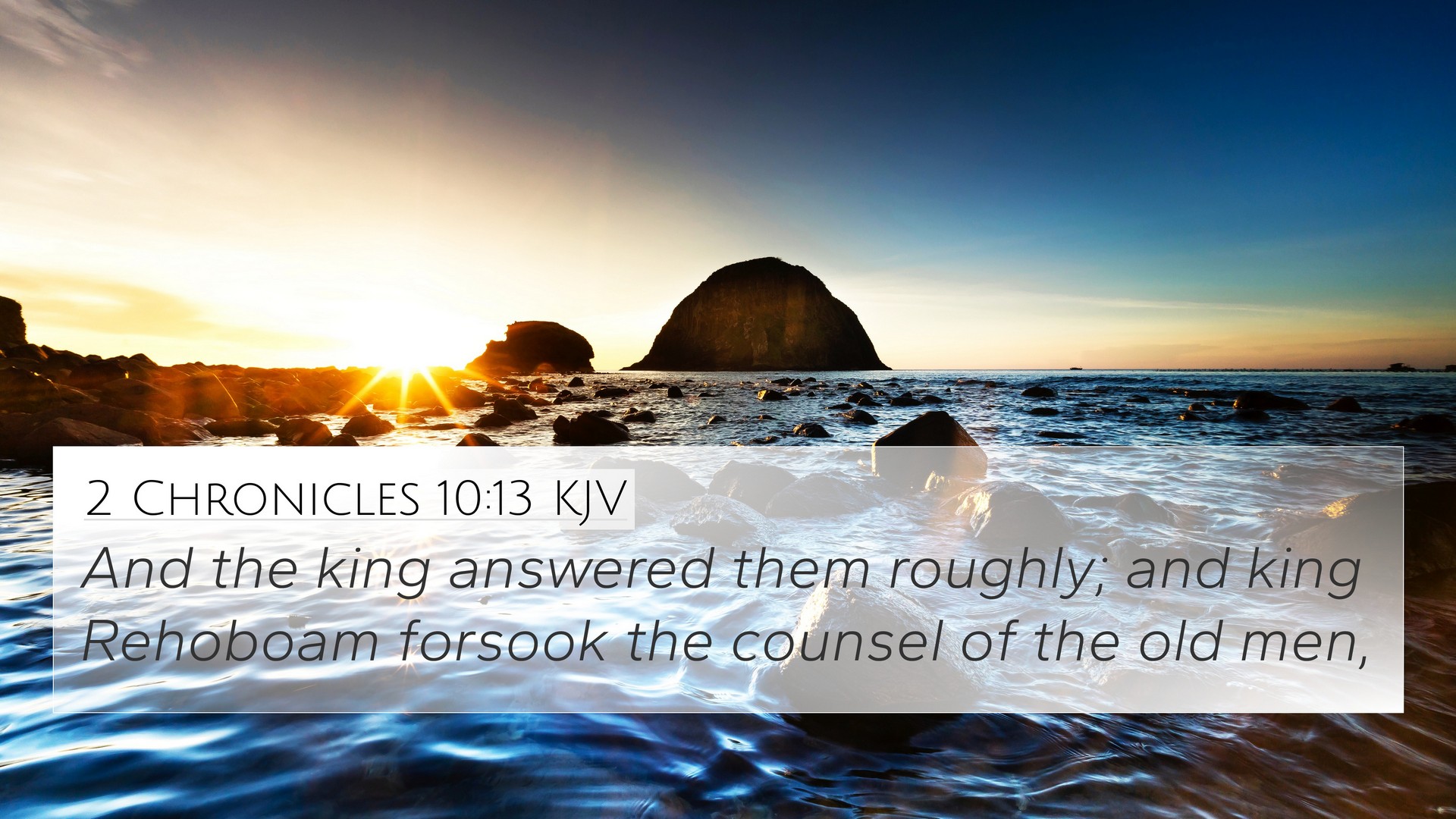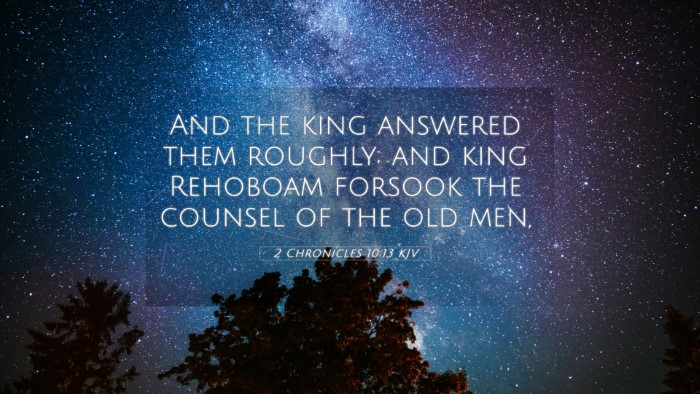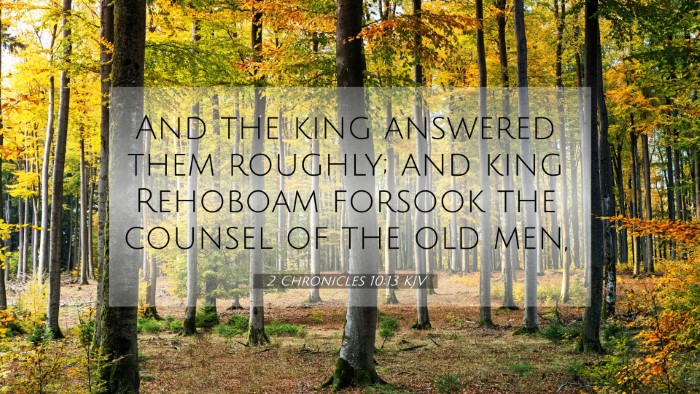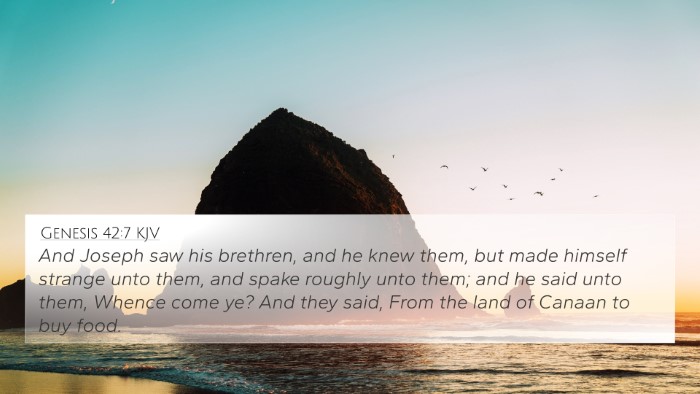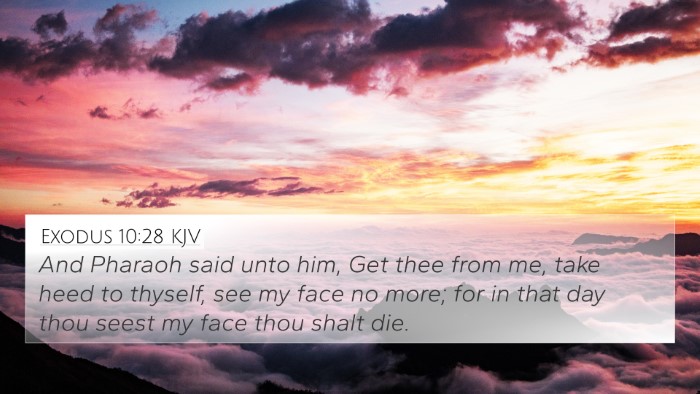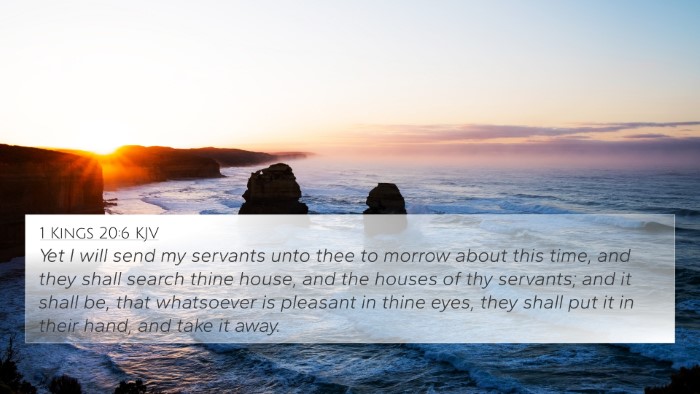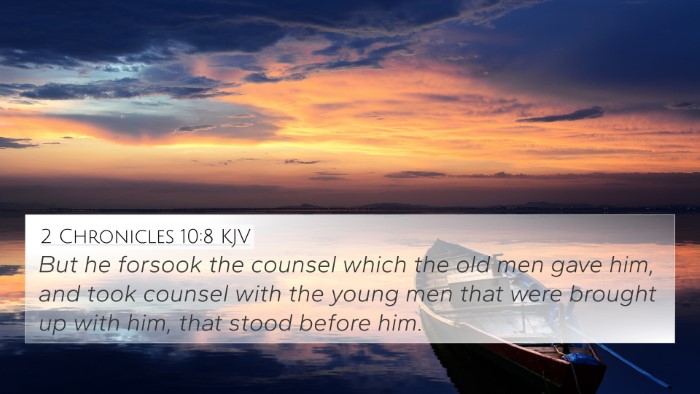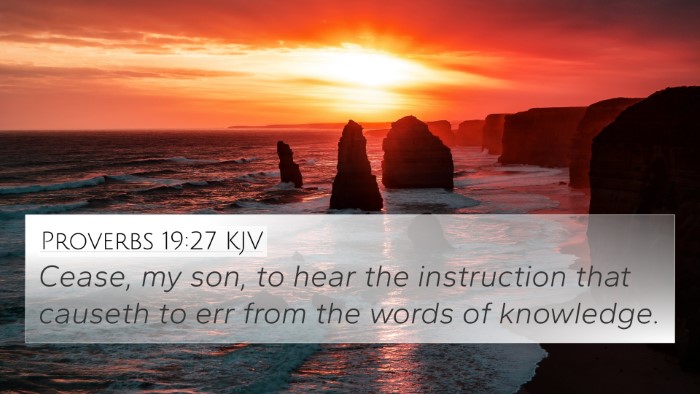Understanding 2 Chronicles 10:13
2 Chronicles 10:13 states: “And the king answered them roughly; and king Rehoboam answered them according to the advice of the young men, saying, My father made your yoke heavy, but I will add to your yoke: my father chastised you with whips, but I will chastise you with scorpions.”
This verse captures a pivotal moment in the reign of Rehoboam, the son of Solomon, where he chose to heed the counsel of young advisors over the elders, leading to significant consequences for his kingdom.
Interpretation Summary
The response of Rehoboam is marked by arrogance and a desire to assert authority. The heavy yoke mentioned refers to the burdens placed on the Israelites during Solomon's reign for the sake of building the temple and other projects. Rehoboam's declaration to make their burdens heavier than his father's indicates a significant pastoral failing and reveals much about his leadership style.
Commentary Insights
-
Matthew Henry:
Henry notes that Rehoboam's harshness represents a common theme in leadership: the failure to learn from the past. By disregarding wise counsel, he condemns his kingdom to strife. He emphasizes the importance of patience and wisdom in leadership, contrasting it with Rehoboam’s impulsiveness.
-
Albert Barnes:
Barnes highlights that Rehoboam’s decision was driven by youthful pride and a desire to prove his strength. The terminology of “scorpions” suggests an even more painful punishment, indicating not just physical burdens but emotional and spiritual ones as well. This serves as a cautionary tale regarding leadership decisions based on pride rather than wisdom.
-
Adam Clarke:
Clarke elaborates on the cultural context of yoke and burdens, noting that Rehoboam reflects a wider biblical theme of obedience and servitude. He discusses the repercussions of leadership decisions that sacrifice the well-being of the people for the sake of personal power or arrogance.
Cross-References to 2 Chronicles 10:13
The thematic connections with other scripture help illuminate the deeper meanings within this passage. Here are key verses that relate to the themes presented in 2 Chronicles 10:13:
- 1 Kings 12:10-11: This parallel account provides insight into the context of Rehoboam's response and decisions.
- Proverbs 15:1: A soft answer turns away wrath, but a harsh word stirs up anger—highlighting the contrast in leadership communication.
- 1 Samuel 8:11-18: God's warning to Israel about the dangers of a king and heavy burdens foreshadows Rehoboam's actions.
- James 3:1: A reminder of the high standards required for teachers and leaders, emphasizing the weight of Rehoboam's responsibility.
- Ecclesiastes 4:13-16: This passage speaks on the importance of wisdom over youth, reinforcing the folly in Rehoboam’s choices.
- Isaiah 9:4: Recognition of the burdens placed on people, further elaborating the implications of Rehoboam’s decisions.
- Matthew 20:25-28: Jesus’ teachings on servant leadership contrast sharply with Rehoboam's approach to authority.
Thematic Connections
The narrative of 2 Chronicles 10:13 speaks to a broader biblical theme of the struggle between wise and foolish leadership. The connections between this verse and others throughout the canon highlight the principles of servitude versus dominance, the responsibility of leaders to care for their people, and the consequences that arise from neglecting wise counsel.
Conclusion
In summary, 2 Chronicles 10:13 serves as a profound reminder of the importance of humility and wisdom in leadership. Rehoboam's choice to listen to the young men rather than wise counsel leads to a fracturing of the kingdom, showcasing that wise decision-making is rooted in understanding and prioritizing the needs of others. This passage encourages all leaders today to seek out counsel and reflect on the impacts of their decisions.
